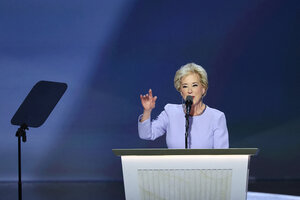Economy | The Circle Bastiat
 Are central banks really necessary?Some analyst argue that a central banking system is only necessary when an economy operates with paper money. Others think that isn't always the case.
Are central banks really necessary?Some analyst argue that a central banking system is only necessary when an economy operates with paper money. Others think that isn't always the case.- 'Fiscal cliff': Cut the spending – and the melodramaThe 'fiscal cliff' is the crisis that didn't need to be, if the Bush tax cuts had been made permanent and Keynesian influence hadn't spread.
 Sweden's war on cash faces oppositionIt seems that the Swedish people are not falling for the anti-cash propaganda spewed by private bankers and Riksbank officials, Salerno writes, and are resisting the trend toward a cashless economy.
Sweden's war on cash faces oppositionIt seems that the Swedish people are not falling for the anti-cash propaganda spewed by private bankers and Riksbank officials, Salerno writes, and are resisting the trend toward a cashless economy.- Wait! Government did cause the housing bubble.Congress's Community Reinvestment Act, aimed at helping the poor afford housing, did lead banks to make much riskier mortgage loans, a new study finds.
More The Circle Bastiat
VIEW ALL
 Are graduate programs a waste of time and money?Those pursuing academic careers face the prospect of earning a precarious living as an “untenured” adjunct professor, hectically shuttling between teaching assignments at different universities and earning a meager living for their trouble.
Are graduate programs a waste of time and money?Those pursuing academic careers face the prospect of earning a precarious living as an “untenured” adjunct professor, hectically shuttling between teaching assignments at different universities and earning a meager living for their trouble. Does government spending really promote economic growth?Salerno questions the Keynesian doctrine that government spending per se raises income and promotes economic recovery.
Does government spending really promote economic growth?Salerno questions the Keynesian doctrine that government spending per se raises income and promotes economic recovery. Nobel prize for economics: A win for the narrow viewRoth and Shapley win Nobel for work involving market design. But is it economics if it only fits specific markets?
Nobel prize for economics: A win for the narrow viewRoth and Shapley win Nobel for work involving market design. But is it economics if it only fits specific markets? Poland is avoiding the eurozone. Should Croatia follow?Croatia intends to become a eurozone member by next summer, but is it a good idea? Several, including London's mayor and Poland's foreign minister, say no.
Poland is avoiding the eurozone. Should Croatia follow?Croatia intends to become a eurozone member by next summer, but is it a good idea? Several, including London's mayor and Poland's foreign minister, say no.- Cooking as entrepreneurshipCooking, entrepreneurship theory, and Austrian economics have a lot more in common than many people might believe. In honor of the late, great Julia Child, the Circle Bastiat's contributors have written a piece combining the three.
 Empty seats at the Olympics: Bad price control to blame?British Olympic organizers restricted ticket prices and rewarded bulk corporate purchases (but not use). They shouldn't be surprised to see so many empty seats.
Empty seats at the Olympics: Bad price control to blame?British Olympic organizers restricted ticket prices and rewarded bulk corporate purchases (but not use). They shouldn't be surprised to see so many empty seats. For shame: Who is really to blame in USOC uniforms spat?In the face of political pressure regarding the use of Chinese manufacturers for Olympic uniforms, the USOC capitulated. But perhaps the more important question is, why is it so much more expensive to manufacture clothing domestically.
For shame: Who is really to blame in USOC uniforms spat?In the face of political pressure regarding the use of Chinese manufacturers for Olympic uniforms, the USOC capitulated. But perhaps the more important question is, why is it so much more expensive to manufacture clothing domestically. Sorens on Raico: Great minds think (mostly) alikeA review of Ralph Raico’s outstanding recent book, Classical Liberalism and the Austrian School reminds David Gordon that appeals to “the results of human action but not of human design” are quite common among Austrian methodological individualists.
Sorens on Raico: Great minds think (mostly) alikeA review of Ralph Raico’s outstanding recent book, Classical Liberalism and the Austrian School reminds David Gordon that appeals to “the results of human action but not of human design” are quite common among Austrian methodological individualists. Debate on reserve fractional banking devolves into public squabbleRon Paul showed how he is open to debate by having both Professor Joseph Salerno and Professor Larry White testify before his sub-committee on the subject of fractional reserve banking. But a perceived bias towards Salerno prompted a rebuke by George Selgin.
Debate on reserve fractional banking devolves into public squabbleRon Paul showed how he is open to debate by having both Professor Joseph Salerno and Professor Larry White testify before his sub-committee on the subject of fractional reserve banking. But a perceived bias towards Salerno prompted a rebuke by George Selgin. European interest rates cut. Too little, too late?European interest rates were cut by central banks in an effort to rescue the eurozone economy. But is the cut in European interest rates a last ditch effort?
European interest rates cut. Too little, too late?European interest rates were cut by central banks in an effort to rescue the eurozone economy. But is the cut in European interest rates a last ditch effort?
Monitor's Best: Top 5
 Should the US give visas to highly skilled immigrants? Unpacking the debate.
Should the US give visas to highly skilled immigrants? Unpacking the debate. Difference MakerThe ‘Repair Café’ movement has become a powerful force for a fix-it culture
Difference MakerThe ‘Repair Café’ movement has become a powerful force for a fix-it culture In pursuit of a modern capital, Ethiopian leader razes history
In pursuit of a modern capital, Ethiopian leader razes history War shut down Sudan’s universities. But its students refused to give up.
War shut down Sudan’s universities. But its students refused to give up. The ExplainerWhy does Trump want to dismantle the Department of Education?
The ExplainerWhy does Trump want to dismantle the Department of Education?




















